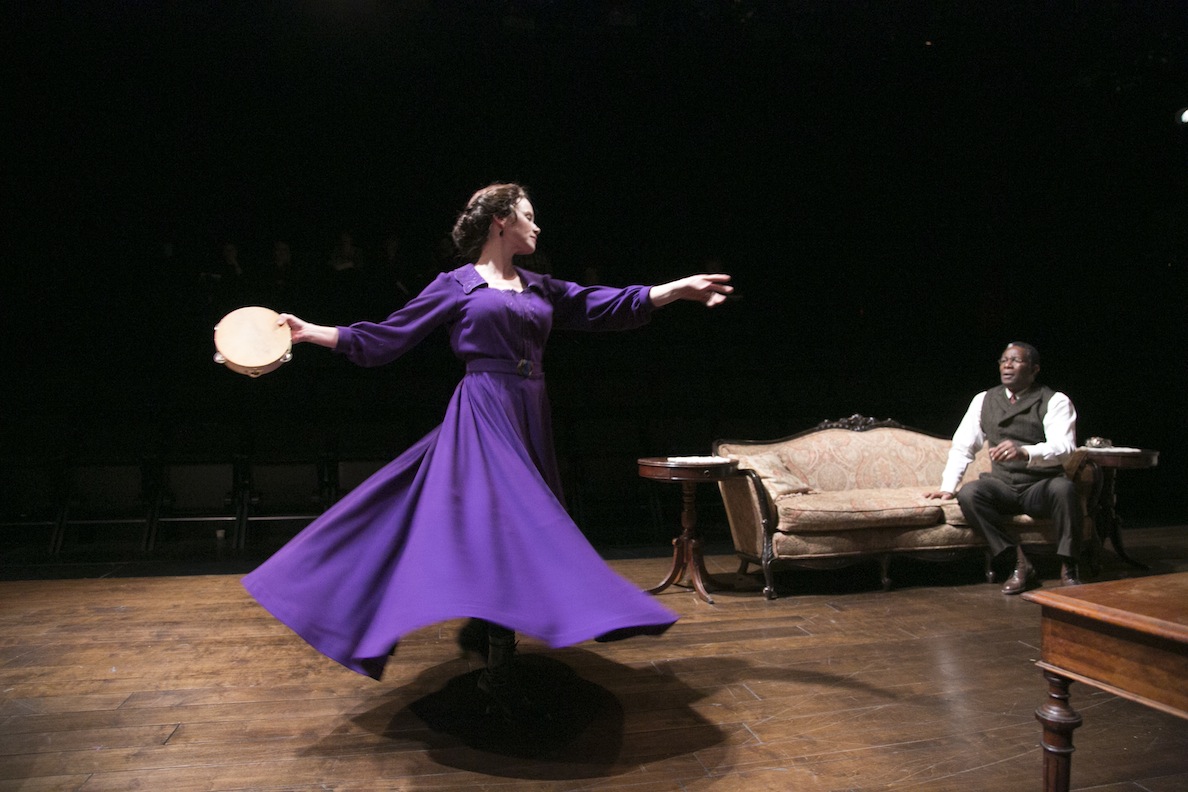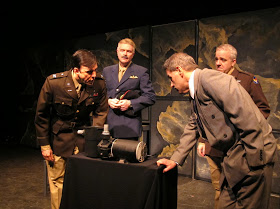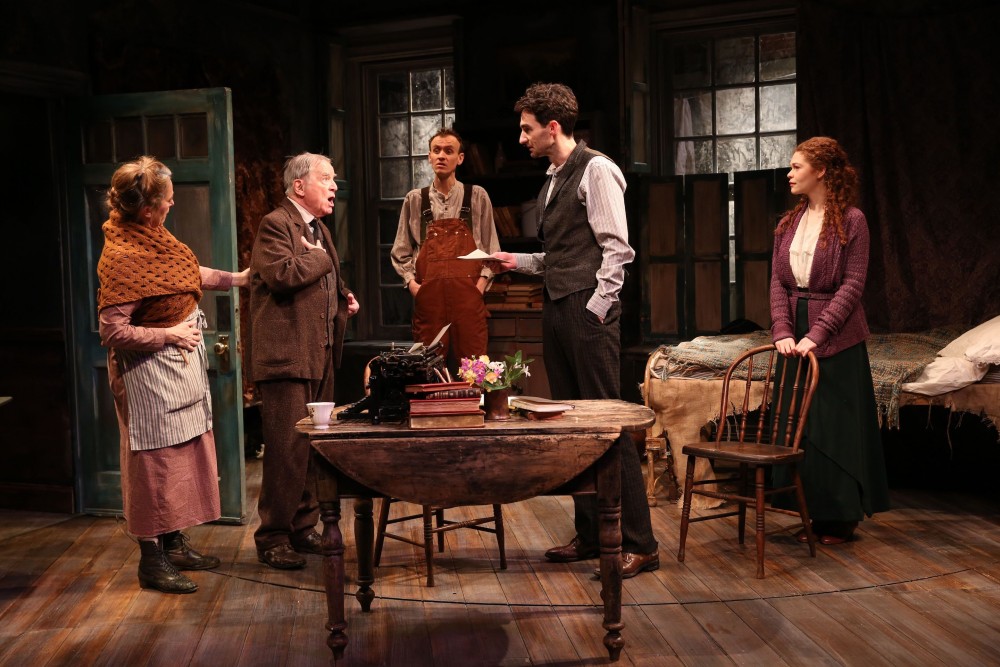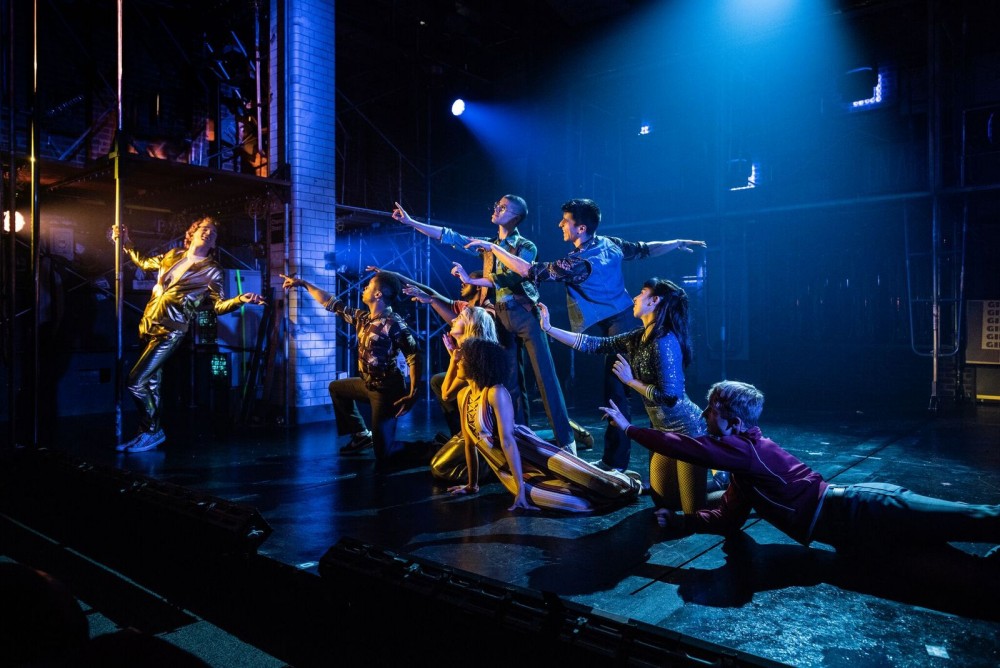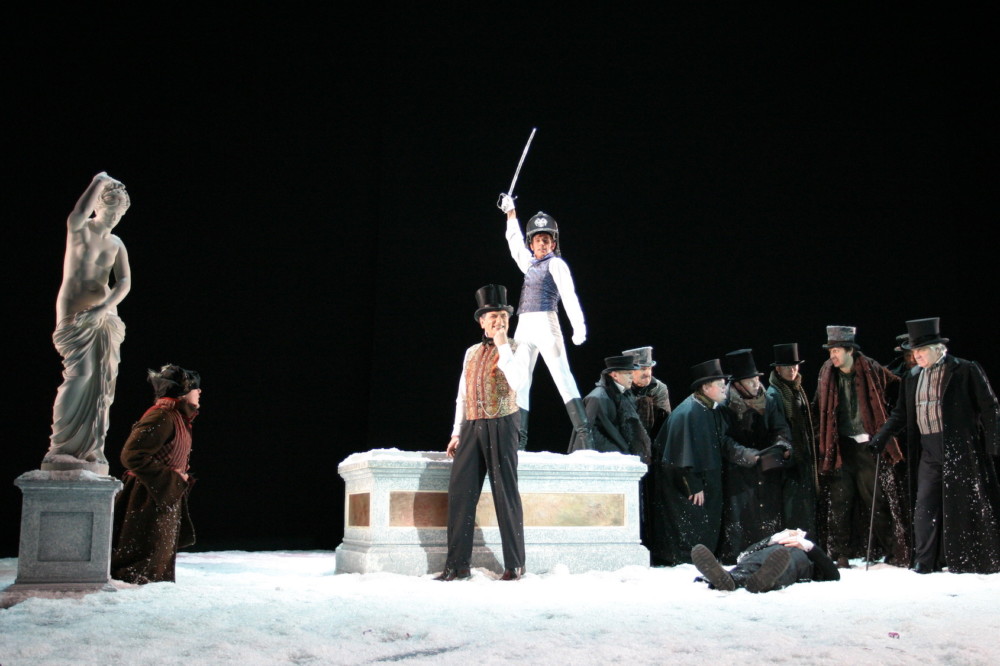
By Ron Fassler
I don’t have much experience seeing Russian actors perform on stage in their native language, frequently presented in something by Chekhov or another brilliant, but long-dead dramatist. Though when I do, I wind up marveling at the originality and creativity on display, just as I did last evening at New York City Center with the Vakhtangov State Academic Theatre’s production of Mikhail Lermontov’s 1835 verse drama Masquerade. This prominent troupe is here for four performances only (June 13-16), breathing new life into an old warhorse. Presented with Russian supertitles, it often made no difference at all to follow the dialogue, since the story—mostly told in broad strokes with much of it pantomimed—was often adroitly subversive and rarely dull.
Directed by the company’s Artistic Director, Rimas Tuminas, who has been its head since 2007, the production feels organically built out of a long rehearsal process, relying upon the actors’ wits and imaginations. Nothing feels forced upon from a director hellbent on proving how clever he is, and even though it has some set pieces that feel dropped in from Mars, it somehow manages to feel part of the whole. Tone is everything, and here Tumanis is a master puppeteer, making sure that his actors (though surely bound by string) aren’t being manipulated or controlled by an unseen presence. From the start, the Prologue, containing some dialogue, is done without the supertitles turned on, as if we are being dared to enter a world we may not understand but should trust anyway. There is no intention here to make us feel like outsiders, but rather the opposite. “Come on in,” it seems to beckon. “Even if you don’t understand a thing or two, all are welcome, and we won’t steer you wrong.”


Olga Nemogay
Masquerade had its premiere in Moscow in 2007. A romance (of sorts), its plot owes a great deal to Shakespeare’s Othello, a piece adapted into endless variations over the centuries. In this case, the story is set against aristocratic characters, the majority of whom seem more intent on getting what they want instead of knowing what they want. Without seeing the forest for the trees, its lead character Evengy Aleskandrovich (played by the morose, yet playful Evengy Knyazev), believes the worst in mankind. Like the Moor of Venice, he mistakes a missing bracelet as proof of his new bride’s infidelity, thereby causing his doom. Alternating the role of Nina, his wife, I saw Olga Nemogay, who spent much of the evening in lament, dressed like a ballerina (and at times standing on point longer than it felt humanly possible), all the while trying to convince her husband of her innocence. Her beauty and poise counter-balanced Evengy’s dour and twisted nature, and their pas de deux of death late in the show (yes, he strangles her just as Othello does), was breathtaking—literally.
Even with the supertitles somewhat mangling English into stilted phrases (“I was glad at the anxiety that filled my breast”), it was easy to excuse their turgidity. And though it may have felt like a great idea to use the haunting refrain written by the Russian composer Aram Khachaturyan specifically for a 1941 production, forever since known to classical music fans as “Masquerade Waltz,” its overuse bordered on excess. As my son Jeremy, who accompanied me last night and who studied at the Moscow Art Theatre a few years ago commented, “Well, that’s Russian theater for you.”
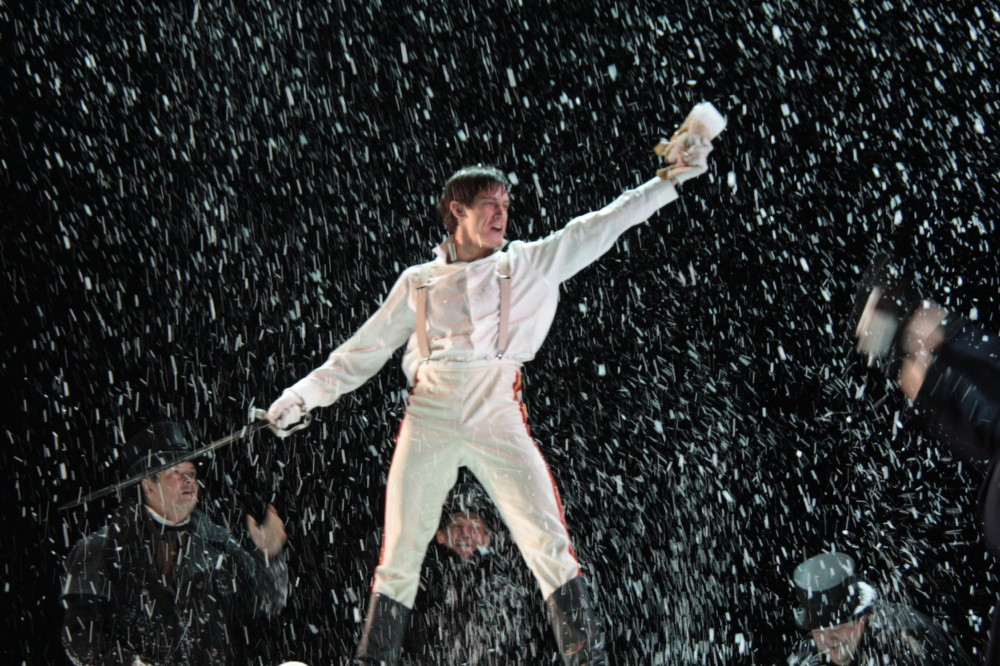

Leonid Bichevin
Also given to excess was the use of falling snow as a motif. Used for each scene change, either coming down in a soft drifting or a blizzard of flurries, the added use of the music and the stylistic movement of the company of twenty made it work nearly every time. For the most part, the stage imagery captured the essential beauty of this tragic tale with a deep poignance and emotional truth. Whether watching a piano being taken apart piece by piece for no explicit reason, or watching a stranger continue to die in a never-ending series of comic bits, Masquerade both intrigued and entertained. In both English and in Russian that translates to the same thing: theatre at its finest.
Masquerade. Through Sunday, June 16 and presented by the Vakhtangov State Academic Theatre at New York City Center, (131 West 55th Street, between Sixth and Seventh Avenues). Presented by the Cherry Orchard Festival. www.nycitycenter.org
Photos courtesy of Vakhatangov Theatre



